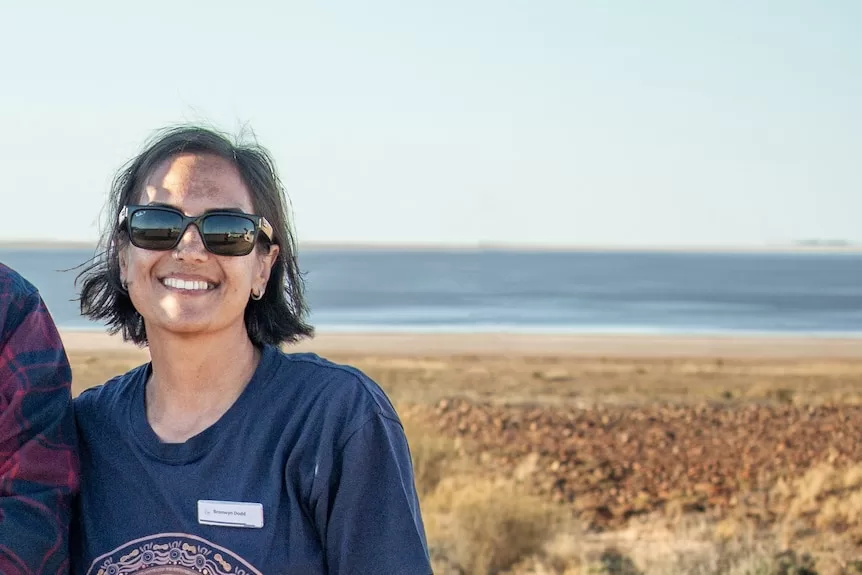- In short: An Arabana representative says it is an important step to protect the culturally significant site.
- The plan has been criticised by a local boating club, which says it is effectively privatising a national park.
- What’s next: Public consultation on the proposed plan is open until Friday, July 19.
A new management plan proposed for outback Kati Thanda-Lake Eyre by the SA government suggests banning members of the public from walking, driving or boating on the lake bed without permission from the traditional owners.
The public would be allowed to view the inland lake from the air or from two designated visitor areas — Halligan Bay Point Campground and the southern information bay off the Oodnadatta Track.
Arabana Aboriginal Corporation chairperson Bronwyn Dodd said Kati Thanda-Lake Eyre was connected to one of their most important Ularaka (stories) and a place where their ancestors rest.
“From a cultural aspect, that’s really disrespectful to enter such a significant cultural site,” she said.
“For us, our ancestors are there, our stories are there, and it’s a very powerful place for Arabana.
“We want people to come and enjoy Kati Thanda by all means. We just want to be able to do that through education and respectful engagement.”
Pushback from boaters
Kati Thanda-Lake Eyre National Park is the second largest national park in Australia, covering more than 1.3 million hectares.
The inland lake is a significant tourist drawcard for the outback region, with the usually dry lake-bed experiencing flooding every three to 10 years.
Lake Eyre Yacht Club commodore Bob Backway said he was in disbelief at the proposed plan.
Mr Backway was against controlling recreational activity on the lake, saying it was “effectively privatising the national park”.
“We respect physical evidence of Arabana culture and we have strict rules in our club that we only look, examine, study and photograph, but put back any relics that we find out there,” he said.
The Department for Environment and Water confirmed there would be exemptions available.
“There’s absolutely provision for access for commercial filming or photography, or commercial tour permits to go out onto the lake and that will be considered on a case by case basis to ensure that what’s being proposed is culturally appropriate,” National Parks and Wildlife Service program director Jason Irving said.
Loading…
If the management plan is adopted, Kati Thanda-Lake Eyre would not be the first natural tourism attraction to limit access to tourists.
In 2019, the Uluru climb was closed by the Uluru-Kata Tjuta National Park board after consultation with the Anangu community.
Misuse hurts traditional owners
Ms Dodd said activities such as driving or boating on the lake could not only damage the lake bed, but was also hurtful for Arabana.
“My elders have often told me that when they see behaviour such as that, that they deeply hurt inside and it hurts them to see our country hurt like that, when it’s being disrespected in such a way,” she said.
“They have tried to engage over the years and to help protect and preserve that, but it’s certainly a deep hurt when we see people disrespecting such a culturally significant site to us.”
Ms Dodd said they also had concerns for the safety of tourists navigating the lake, which was in a remote area.
Members of the public can provide feedback on the management plan online until July 19.
